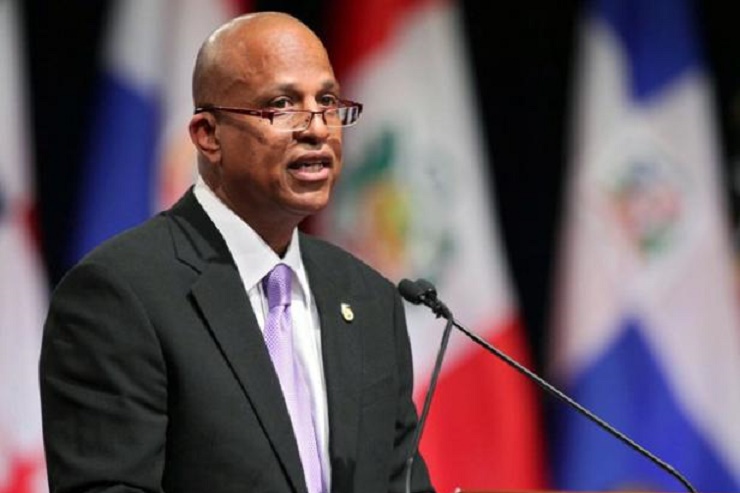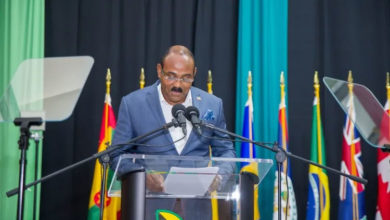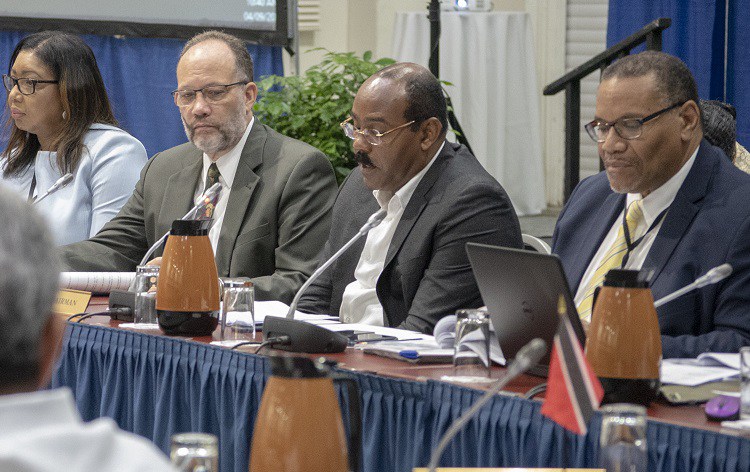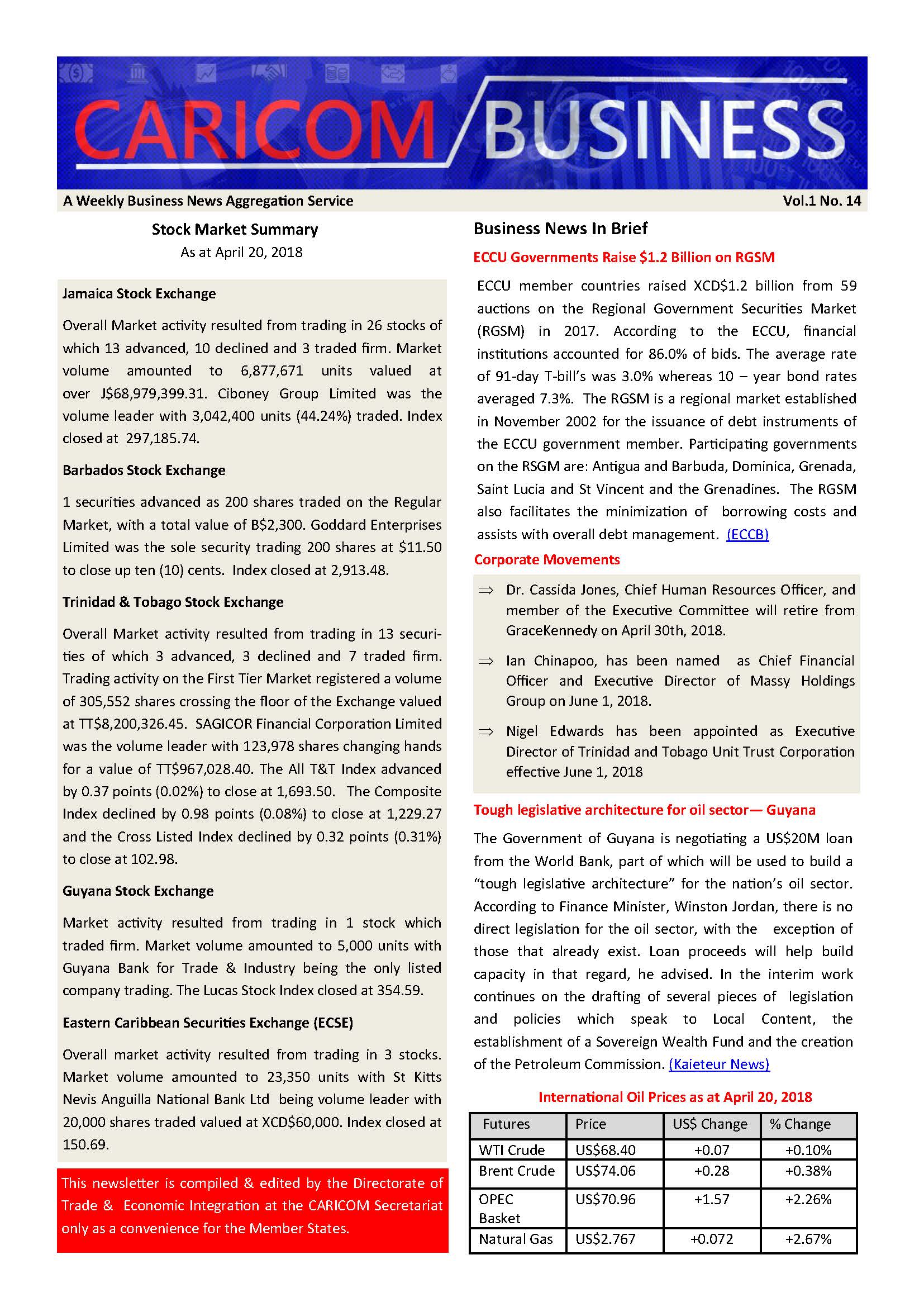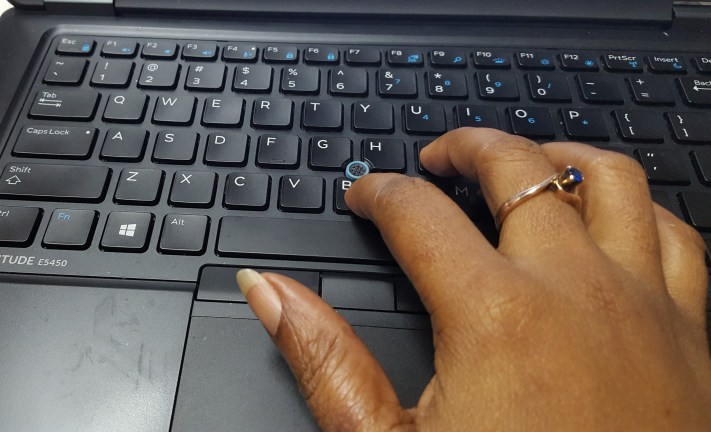PLACENCIA, Brazil, Friday February 19, 2016 – Concern that a decision taken by global banks could ruin the region’s financial sector has prompted a decision by Caribbean Community (CARICOM) leaders to take the matter as far as the World Trade Organization (WTO), the United Nations (UN) and the United States President.
According to CARICOM chairman, Belize Prime Minister Dean Barrow, CARICOM will employ the full gamut of options available to it to confront the correspondent banking crisis that is threatening the region, as he stressed the need for collective action, sensitization and mobilization.
The threat relates to the possible loss of access to the international financial markets by mainly the region’s indigenous banks. Several international banks, mainly in the US and Europe, have signalled to client banks in the region an unwillingness to continue carrying their business. The so-called de-risking by the global banks threatens to impact several critical services including remittance transfers. International trade, the facilitation of credit card settlements for local clients are among the other effects the region faces.
Among the measures CARICOM Heads decided on at their 27th Intersessional Meeting in Belize, which ended on Wednesday, was the establishment of a high level advocacy group, led by Antigua and Barbuda Prime Minister, Gaston Browne. His mission is to represent CARICOM’s interest at all levels, including with the UN, WTO and US Congress.
The goal is to underline to all the key players, including the US Congress “how absolutely existential this issue is for us”, said Prime Minister Barrow who is also to write a letter to US President Barack Obama on the matter.
“It is going to take a great deal of doing . . . All we can say is that we are determined to pursue all possible means until we get the kind of resolution . . . that we want,” Barrow said.
He said Prime Minister Browne’s mission was just one avenue through which CARICOM hoped to find a solution to the problem, which he described as a “possible correspondent banking Armageddon” against which the region would have to wage a relentless war.
He pointed to the scenario in Montserrat to underscore the gravity of the situation. That CARICOM member state has only two banks and they are “having their status revoked”, Barrow said.
“When the CARICOM mission begins its campaign, it will involve not just talking to regulators – and I imagine part of that conversation will then be focusing on the declared willingness of regulators to look at the infrastructure to see if it can be made less stringent while still retaining its effectiveness. But the mission will also talk to correspondent banks, in the same way that Belize as an individual country has been attempting to do,” the Belize prime minister said.
“And we recognize that the conundrum of the correspondent banks not wanting to assume the burden of the regulatory requirements given that the returns from our business are fairly small, is something that we have to address.”
Barrow has recommended that CARICOM member states pool their business to achieve critical mass and to make it worthwhile for the correspondent banks. The governors of regional Central Banks, and the Committee of Ministers of Finance on Correspondent Banking, that Heads of Government have established, will consider the modalities of that recommendation.
“There is no doubt that as a group and acting collectively we can achieve far more, certainly in relation to this particular issue, than if we try to go our separate routes. So I think there is a lesson in all this: that despite the difficulties and despite accepting certain realities, we must never lose sight of or let go of the ultimate need for us to move together as one Community,” he said.
Prime Minister Barrow reiterated that banking regulators had assured there was no “problem with our jurisdictions” and added that all CARICOM Member States were Financial Action Task Force (FATF) compliant. He rejected outright the notion that corruption in governments may be one of the factors responsible for the de-risking.

